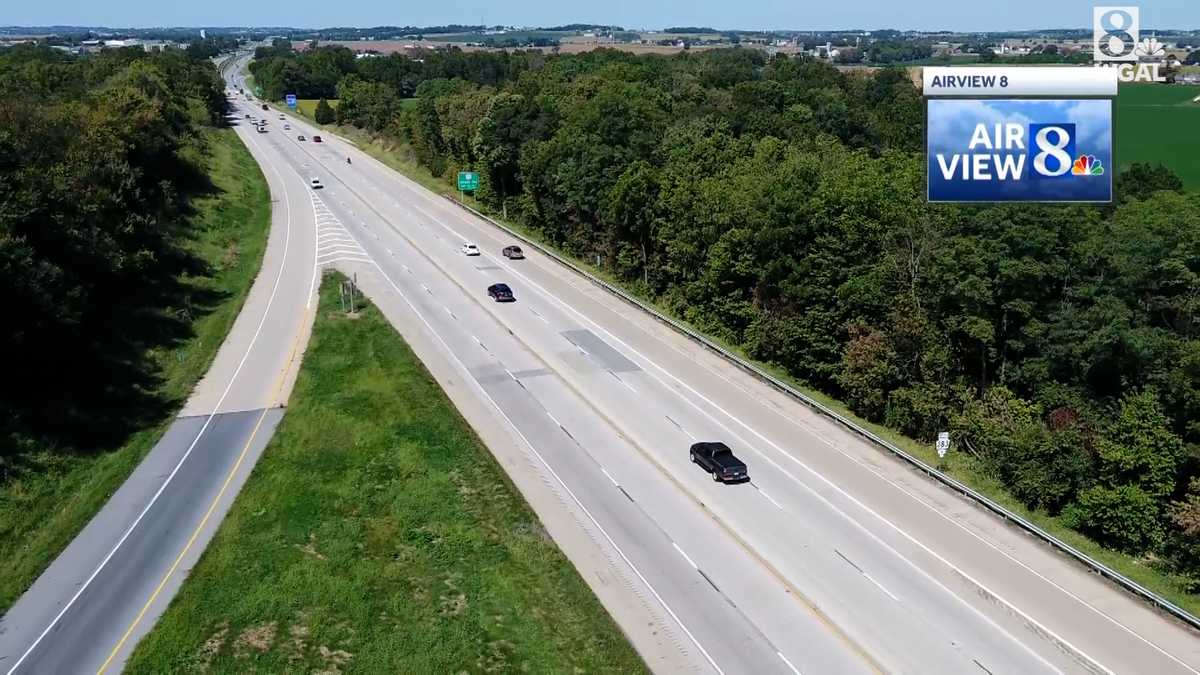Dealerships Double Down: Renewed Opposition To EV Sales Mandates

Table of Contents
Financial Concerns and Infrastructure Gaps
Dealerships cite significant financial hurdles as a primary reason for their opposition to EV sales mandates. These concerns center around substantial investment costs and the currently inadequate charging infrastructure.
Investment Costs and Profit Margins
Adapting to the EV market requires considerable upfront investment for dealerships. This includes:
- High initial costs of EV inventory: Electric vehicles often command higher purchase prices than comparable internal combustion engine (ICE) vehicles, tying up significant capital for dealerships.
- Need for specialized tools and training: Servicing EVs requires specialized tools, equipment, and technician training, representing a substantial expense for dealerships.
- Uncertainty around EV servicing revenue streams: The profitability of EV servicing is still uncertain, with concerns about lower repair frequency and potentially reduced revenue compared to ICE vehicles. This creates financial risk for dealerships investing in EV infrastructure.
Lack of Adequate Charging Infrastructure
The success of EV adoption relies heavily on a robust public charging network. Dealerships highlight the current deficiencies:
- Limited availability of public charging stations: The existing charging infrastructure is insufficient to support widespread EV adoption, particularly in rural areas.
- Range anxiety remains a significant barrier to EV adoption: Consumer apprehension about running out of charge before reaching a charging station continues to limit EV purchases.
- Uneven distribution of charging infrastructure across regions: The availability of charging stations varies considerably across geographic locations, creating further challenges for EV adoption. This uneven distribution makes it difficult for dealerships in less-developed areas to effectively sell and service EVs.
Consumer Demand and Market Readiness
Dealerships also question the current market readiness for the aggressive EV sales mandates being implemented. They argue that mandating sales before sufficient consumer demand exists is unsustainable.
Insufficient Consumer Demand for EVs
A number of factors currently limit consumer demand for EVs:
- High purchase price of EVs compared to ICE vehicles: The higher initial cost of EVs remains a significant barrier for many consumers.
- Limited range of EV models available to consumers: The current selection of EV models might not cater to all consumer needs and preferences, limiting market appeal.
- Concerns about battery life and charging times: Consumer concerns persist about battery longevity, charging times, and the overall convenience of EV ownership.
Challenges in Educating Consumers about EVs
Dealerships highlight the significant effort required to educate consumers about the benefits and practicalities of EVs:
- Need for improved consumer awareness campaigns: Targeted and effective campaigns are needed to dispel misconceptions and highlight the advantages of EV ownership.
- Addressing misconceptions about EV technology: Addressing common concerns about range, charging infrastructure, and battery life is vital for boosting consumer confidence.
- Providing clear and accessible information on EV ownership: Dealerships need resources to provide accurate and easy-to-understand information to potential EV buyers.
The Impact of EV Sales Mandates on the Automotive Industry
The rapid implementation of EV sales mandates poses serious challenges for the entire automotive industry, potentially leading to job losses and disproportionately affecting smaller dealerships.
Potential Job Losses in the Traditional Automotive Sector
Aggressive EV mandates risk job displacement within the automotive sector:
- Need for retraining and upskilling programs for dealership staff: Significant investment in retraining programs is necessary to equip technicians with the skills to service EVs.
- Potential displacement of workers due to automation in EV servicing: Automation in EV servicing could lead to further job losses if not properly managed.
Disproportionate Impact on Smaller Dealerships
The financial burden of transitioning to EV sales is particularly challenging for smaller dealerships:
- Financial assistance needed for small and independent dealerships: Government support and financial assistance are crucial to help smaller dealerships adapt to the changing market.
- Need for equitable support policies for all automotive businesses: Policies should be designed to ensure fair competition and prevent market consolidation.
Conclusion
Dealerships' opposition to EV sales mandates is rooted in valid concerns about financial viability, inadequate infrastructure, and insufficient consumer demand. While the transition to electric vehicles is essential for environmental sustainability, a more gradual and balanced approach that addresses the challenges faced by dealerships is critical. Collaboration between governments, manufacturers, and dealerships is crucial to navigate this transition successfully. Ignoring the concerns surrounding EV sales mandates risks significant disruption to the automotive industry. A phased approach, supported by adequate infrastructure development and consumer education initiatives, is necessary for the responsible and successful adoption of electric vehicles. A collaborative effort is essential to overcome the challenges and ensure a smooth transition to a cleaner, more sustainable future of transportation.

Featured Posts
-
 Experience The Thrill Funbox Bounce Park Opens In Mesa Az
May 22, 2025
Experience The Thrill Funbox Bounce Park Opens In Mesa Az
May 22, 2025 -
 The Goldbergs Behind The Scenes Look At Production And Cast
May 22, 2025
The Goldbergs Behind The Scenes Look At Production And Cast
May 22, 2025 -
 Viral Video Cubs Fans Lady And The Tramp Hot Dog Moment
May 22, 2025
Viral Video Cubs Fans Lady And The Tramp Hot Dog Moment
May 22, 2025 -
 Record Breaking Run Man Completes Fastest Foot Crossing Of Australia
May 22, 2025
Record Breaking Run Man Completes Fastest Foot Crossing Of Australia
May 22, 2025 -
 Nato Nun Gelecegi Tuerkiye Nin Belirleyici Rolue Ve Etkisi
May 22, 2025
Nato Nun Gelecegi Tuerkiye Nin Belirleyici Rolue Ve Etkisi
May 22, 2025
Latest Posts
-
 Interstate 83 Closed After Produce Truck Accident
May 22, 2025
Interstate 83 Closed After Produce Truck Accident
May 22, 2025 -
 Produce Truck Rollover Shuts Down Part Of I 83
May 22, 2025
Produce Truck Rollover Shuts Down Part Of I 83
May 22, 2025 -
 Produce Hauling Truck Accident On Interstate 83
May 22, 2025
Produce Hauling Truck Accident On Interstate 83
May 22, 2025 -
 Fed Ex Truck Inferno Shuts Down Route 283 In Lancaster County
May 22, 2025
Fed Ex Truck Inferno Shuts Down Route 283 In Lancaster County
May 22, 2025 -
 Route 283 Closed Due To Fed Ex Truck Fire In Lancaster County Pa
May 22, 2025
Route 283 Closed Due To Fed Ex Truck Fire In Lancaster County Pa
May 22, 2025
